photo credit: http://pixabay.com/en/people-child-school-genius-316506/ CC0
“I’m horrible in math, I’ll never use this in my life, what’s the point in trying, I suck at it, it makes no sense to me, I’ll never been good at math, this textbook is boring.” If you’ve overheard statements similar to these when it comes to learning mathematics in school, you are not in the minority. In fact, Canada’s international ranking in math scores reflects these disenchanted sentiments, consistently dipping over the past seven years, recently placing 13th among 65 countries in the Organization for Economic Co-operation and Development’s Program for International Student Assessment, or PISA. Prompting John Manley, president of the Canadian Council of Chief Executives to state we’re “on the scale of a national emergency.” The reason for concern stems from the fact that since 2006 we are in a downward spiral in math success rates across Canada, and our highest achieving students are becoming fewer and far between. All of which comes at a massive cost to our society as illustrated in the infographic below.
With emergence of new math strategies and programs popping up across the country to address this math dip, one fact that is undeniable, students’ early numeracy skills are not propelling them into higher-order mathematical problem solving. In fact, students are “checking out” of math earlier in school because they just don’t see the relevance; they really can’t see the forest for the trees. University of Wisconsin Professor of Mathematics, Jordan Ellenberg explains in his newest book, How Not to Be Wrong: The Power of Mathematical Thinking, that math needs to be rejuvenated as a “hobby.” Urging educators to release math from blackboards and textbooks and classrooms, because if we fail to, “it would be like nobody played the guitar around a campfire just because they weren’t a professional musician.”
As in many subjects in school, mathematics is sequential, concepts add onto one another as the student advance in their education. Early numeracy and literacy skills are fundamental in this progress, without deep understanding of essential numerical concepts and solid literacy skills, math knowledge is being built on a house of cards. John Mighton, founder of the charity JUMP Math, research on math and anxiety indicates, “when children decide they aren’t talented in math, their brains work less efficiently: they stop paying attention, taking risks and persevering in the face of difficulty, and they often develop anxieties or behavioural problems.” Many experts point their fingers at the textbooks teachers have to work with for creating this complacency towards math, Alon Amit, co-founder at Origami Logic agrees, “textbooks are horrendous. They are massive, confusing, uninspiring, incredibly inefficient, and stupefyingly boring.” Furthermore, expert math teacher Dan Meyer, reported during a recent TED talk, “learning from current math textbooks is the equivalent of watching hours of “Two and a Half Men”: meaningless… students are taught to solve formulaic solutions to formulaic problems without any real-world context.”
In Math class needs a makeover, Dan Meyer points out that “Today’s math curriculum is teaching students to expect — and excel at — paint-by-numbers classwork, robbing kids of a skill more important than solving problems: formulating them.”
So, is it time to wipe the blackboard clean? To shred the textbooks?? To professionally develop math teachers till the cows come home??? Cancel math class altogether????
There is no denying numeracy is fundamental in life. Without it, how do we tip at a restaurant, order the right amount of roofing tiles to repair a leaky roof, cost a car purchase, double a cake recipe, plan a budget for a summer vacation, build a garden? We can’t! (Some would argue that these things can be done with a smartphone, but stay with me – my point is that we shouldn’t need smartphones to do these things, like we shouldn’t need to use our phones to compose an email for us, or write poetry or convince someone of our point of view).
Leading math educators tend to agree that a change is urgently needed in how we teach mathematics in schools, supported by a growing body of research in cognitive science suggesting students need a perfect union of teaching the basic facts, like the times tables, with much more formative assessments, discovery learning, teacher coaching and of course relevant practice. The biggest change must come in the delivery of the content, it has to be engaging and fun, after all, students love solving puzzles, seeing patterns and making connections. But where does that childhood exuberance go? Their sense of wonder is only diminished by failure. If we can create a climate of fun, discovery, excitement, continuous feedback and support we can change the course of “what will I ever use this for,” to “I love math, it’s my favourite subject ever!”
This interactive map provides an in-depth look at more than 52,000 numeracy profiles across Canada. These profiles were created by combining demographic information from the 2006 Census with numeracy scores from the 2003 IALLSS, which was conducted by Statistics Canada and the Organisation for Economic Co-operation and Development (OECD).
In my next post in the Beyond the Textbook series, I will delve into the various effective and practical strategies for teaching mathematics. Meanwhile, what are some of your strategies for making math relevant and improving your students’ numeracy skills?
***
OECD (2015), Mathematics performance (PISA) (indicator). doi: 10.1787/04711c74-en (Accessed on 11 May 2015)
Mighton, J. (2013, December 8). Canada needs a revolution in math education. Retrieved May 14, 2015, from http://www.thestar.com/opinion/commentary/2013/12/08/canada_needs_a_revolution_in_math_education.html
Skehill, K. (2013, November 1). Making Sense of Math | Changing perspectives on math through experiential learning. Retrieved May 14, 2015, from http://www.cea-ace.ca/education-canada/article/making-sense-math

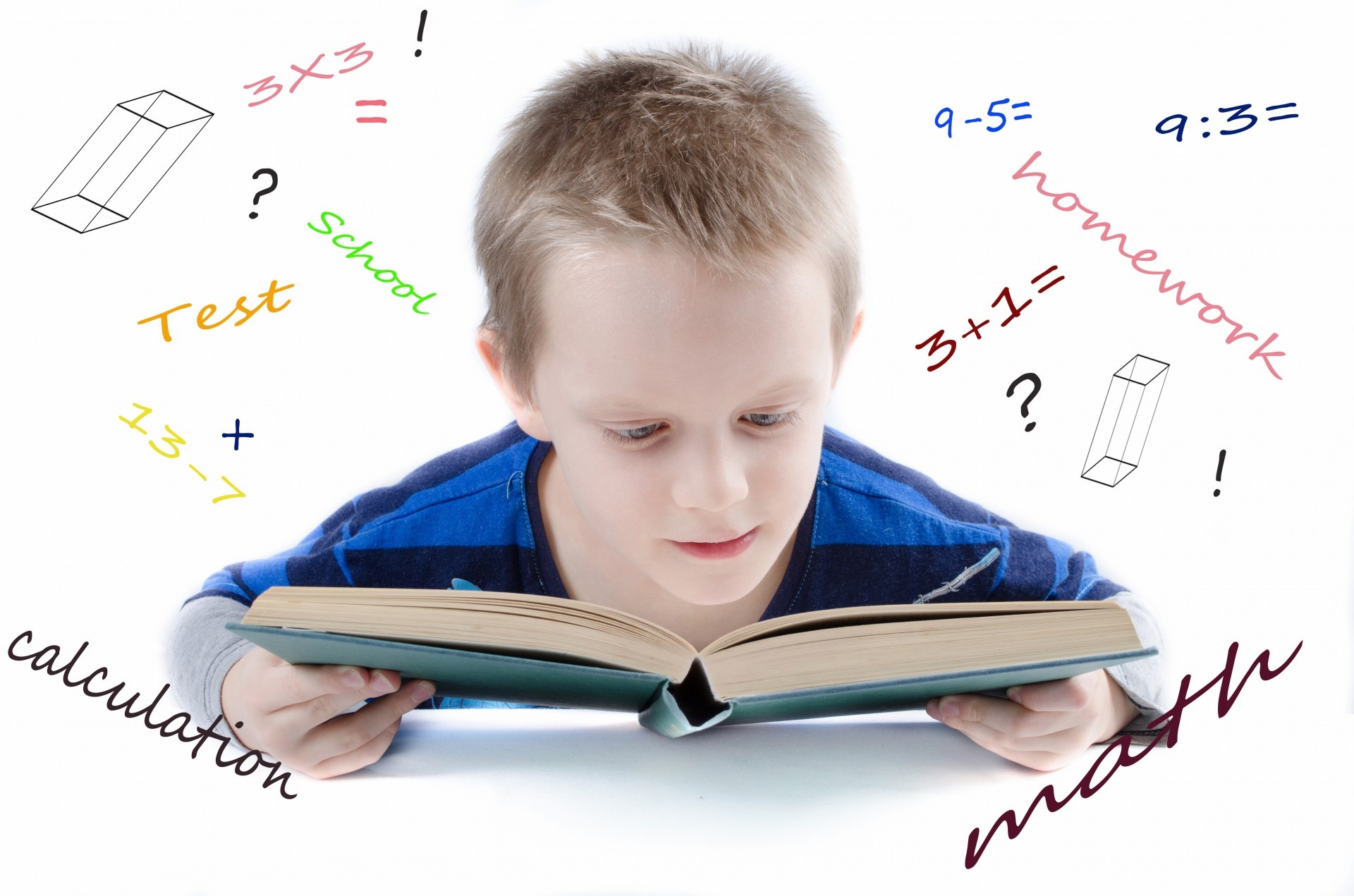
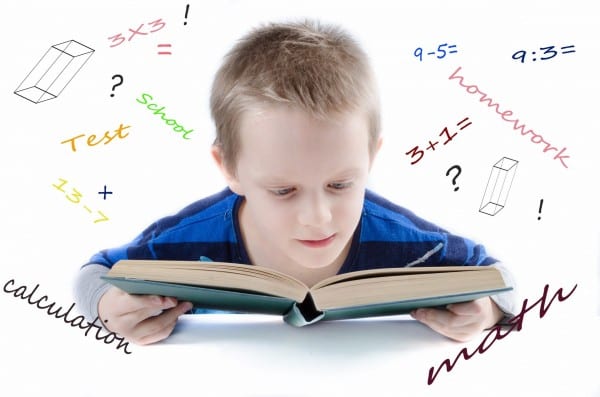
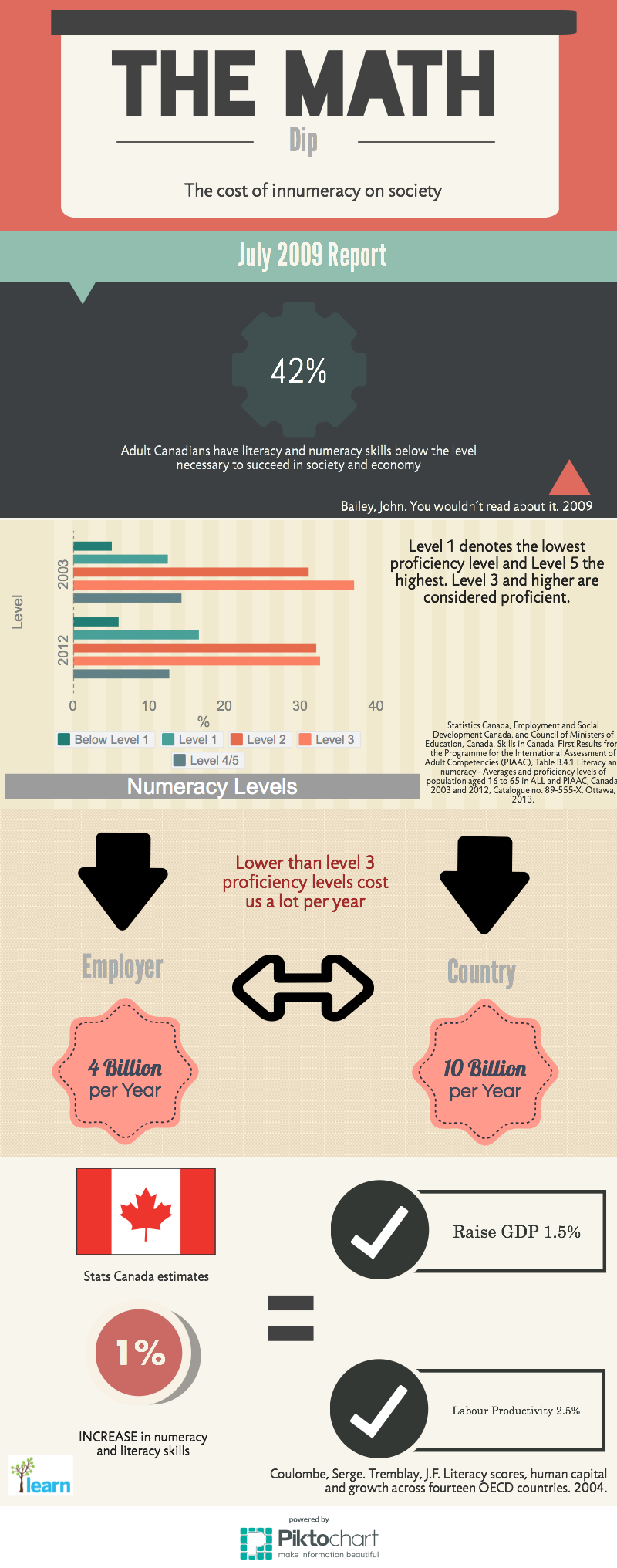
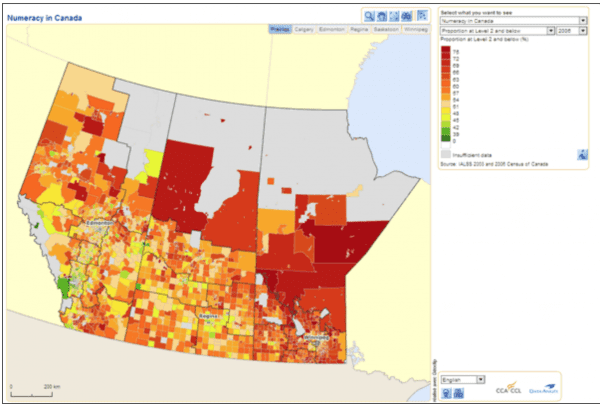
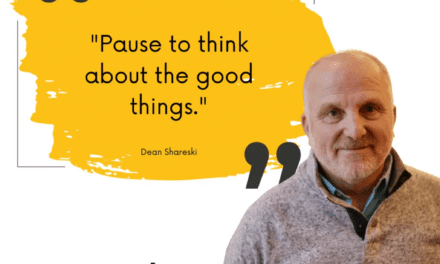
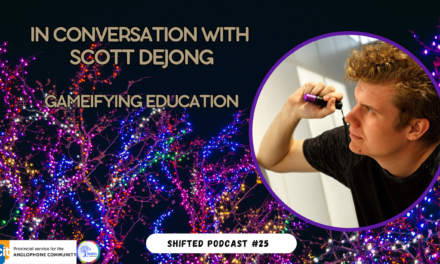


I agree that we use math skills almost continuously in everyday life. Unfortunately what we teach our students in math class doesn’t have much to do with real-life math. If you’re not an engineer, scientist or math teacher, I doubt that you have ever solved an equation with 2 unknowns or rationalized an algebraic expression since you wrote the final exam in high school. No wonder so many students feel detached from their math courses – especially in cycle 2 secondary.
I agree Ken. It’s kinda the definition of insanity – doing the same thing over and over and expecting different results. In my next post I hope to share some strategies and techniques that might help math teachers be the change that their students so desperately need, especially the students that feel they are no good in math. Thanks for your comment.